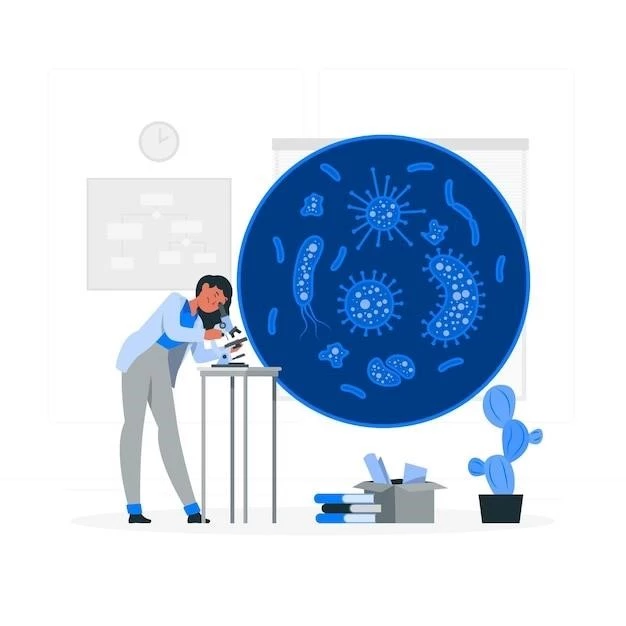Disease⁚ Lissencephaly Immunodeficiency ⸺ Article Plan
Introduction to Lissencephaly Immunodeficiency
Lissencephaly Immunodeficiency is a rare genetic disorder characterized by the co-occurrence of lissencephaly (smooth brain) and immune system deficiency․ This condition is caused by a genetic mutation that results in brain abnormalities and immune system dysfunction․
Individuals diagnosed with Lissencephaly Immunodeficiency often experience cognitive impairment, developmental delay, and neurological conditions․ The compromised immune system makes them more susceptible to infections and other health challenges․
Due to the complexity of this disorder, managing its symptoms and complications poses significant challenges for patients, caregivers, and healthcare providers․ Research into effective treatments and interventions for Lissencephaly Immunodeficiency is ongoing to improve outcomes and quality of life for affected individuals․
Overview of Lissencephaly and Immunodeficiency
Lissencephaly, also known as ″smooth brain,″ is a rare brain malformation characterized by the absence or underdevelopment of the brain’s folds and grooves․ This condition often leads to cognitive impairment, developmental delays, seizures, and other neurological symptoms․
Immunodeficiency refers to a weakened or compromised immune system, which hampers the body’s ability to fight off infections and diseases․ When lissencephaly and immunodeficiency are combined in Lissencephaly Immunodeficiency, individuals face a dual challenge of neurological and immunological deficits․
Individuals with Lissencephaly Immunodeficiency may exhibit a range of symptoms related to both brain abnormalities and immune system dysfunction․ Understanding the interplay between these two aspects is crucial in providing holistic care and management for those affected by this complex condition․
The co-occurrence of lissencephaly and immunodeficiency creates unique challenges in diagnosis, treatment, and prognosis․ It requires a specialized approach that addresses both the neurological and immunological aspects of the disorder to optimize outcomes and enhance the quality of life for individuals living with Lissencephaly Immunodeficiency․
Causes of the Condition
Lissencephaly Immunodeficiency is primarily caused by genetic mutations that affect the development of the brain and the immune system․ Specifically, mutations in genes associated with neuronal migration and immune function can lead to the manifestation of both lissencephaly and immunodeficiency in affected individuals․
In lissencephaly, disruptions in genes such as LIS1 and DCX can result in abnormal neuronal migration during fetal development, leading to the smooth brain characteristic of the condition․ On the other hand, mutations in genes involved in immune system regulation and response can compromise the body’s ability to defend against infections and maintain overall immune health․
The complexity of Lissencephaly Immunodeficiency arises from the intricate genetic interplay between brain development and immune system functionality․ These genetic abnormalities can affect various physiological processes, resulting in the dual presentation of neurological and immunological impairments seen in individuals with this condition․
Understanding the genetic underpinnings of Lissencephaly Immunodeficiency is crucial for accurate diagnosis, prognosis, and potential targeted therapies․ Ongoing research aims to elucidate the specific genetic mechanisms involved in the development of this disorder, paving the way for advancements in precision medicine and personalized treatment approaches for affected individuals․
Symptoms of Lissencephaly Immunodeficiency
Individuals with Lissencephaly Immunodeficiency may present with a spectrum of symptoms arising from both lissencephaly and immunodeficiency․ Neurological symptoms include cognitive impairment, developmental delays, seizures, muscle stiffness, and feeding difficulties․ These manifestations result from the brain’s smooth surface and structural abnormalities․
On the immunodeficiency front, affected individuals may experience recurrent infections, increased susceptibility to viruses and bacteria, failure to thrive, and autoimmune complications․ The compromised immune system makes it challenging for the body to ward off pathogens effectively, leading to frequent illnesses and health complications․
Furthermore, individuals with Lissencephaly Immunodeficiency may exhibit symptoms such as intellectual disability, speech and language deficits, growth delays, and respiratory issues․ The combination of neurological and immunological symptoms poses significant challenges in managing the overall health and well-being of those affected by this complex condition․
Monitoring and addressing these diverse symptoms require a multidisciplinary approach involving neurologists, immunologists, geneticists, and other healthcare professionals․ Tailored interventions aimed at symptom management and improving quality of life can help mitigate the impact of Lissencephaly Immunodeficiency on affected individuals and their families․
Diagnosis of Lissencephaly Immunodeficiency

Diagnosing Lissencephaly Immunodeficiency involves a comprehensive evaluation that integrates clinical assessments, genetic testing, neuroimaging studies, and immunological investigations; The presence of both lissencephaly and immunodeficiency manifestations in an individual prompts a thorough diagnostic process to confirm the condition․
Neuroimaging techniques such as magnetic resonance imaging (MRI) play a crucial role in visualizing the brain’s structure and identifying lissencephaly-related abnormalities․ Genetic testing helps identify specific mutations associated with neuronal migration disorders and immune system deficiencies, providing genetic confirmation of the condition․
Immunological assessments, including immune function tests and evaluation of antibody levels, help assess the status of the immune system and detect any deficiencies that may be present in individuals with Lissencephaly Immunodeficiency․ These tests aid in understanding the immunological component of the disorder and guiding appropriate management strategies․
Given the complexity of diagnosing Lissencephaly Immunodeficiency, a multidisciplinary team of specialists, including neurologists, geneticists, immunologists, and pediatricians, collaborates to reach an accurate diagnosis․ Early and precise diagnosis is essential for initiating timely interventions, providing appropriate care, and planning for the long-term management of the condition․
Prognosis and Challenges
The prognosis for individuals with Lissencephaly Immunodeficiency varies based on the severity of symptoms, the extent of brain abnormalities, and the degree of immune system compromise․ Managing the complex interplay between neurological and immunological aspects presents significant challenges for both patients and healthcare providers․
Due to the profound impact of lissencephaly on neurological development and the increased susceptibility to infections resulting from immunodeficiency, individuals with this condition often face lifelong challenges and complications․ These may include cognitive impairment, motor disabilities, recurrent infections, and respiratory issues․
Furthermore, the progressive nature of certain neurological and immunological symptoms can pose additional hurdles in the long-term management of Lissencephaly Immunodeficiency; Addressing the evolving needs of affected individuals, coordinating care across specialties, and ensuring access to supportive services are crucial in optimizing outcomes and quality of life․
Despite the challenges presented by Lissencephaly Immunodeficiency, advancements in medical care, supportive therapies, and research offer hope for improved management strategies and outcomes․ Ongoing research efforts aim to further elucidate the underlying mechanisms of the disorder, leading to the development of novel treatments and interventions that may enhance the prognosis and well-being of individuals with this complex condition․
Treatment Options
Treating Lissencephaly Immunodeficiency necessitates a multifaceted approach aimed at addressing both the neurological and immunological aspects of the disorder․ While there is no cure for this complex condition, symptom management, supportive therapies, and targeted interventions can improve the quality of life for affected individuals․
Neurological interventions may include early intervention services, physical therapy, occupational therapy, speech-language therapy, and behavioral therapies to address cognitive and developmental delays․ Seizure management strategies, medication regimens, and monitoring for complications related to lissencephaly are also paramount in the overall treatment plan․
Managing immunodeficiency in individuals with Lissencephaly Immunodeficiency involves close monitoring of immune function, prophylactic measures to prevent infections, and timely treatment of illnesses․ Immunoglobulin replacement therapy, antibiotic prophylaxis, and vaccination protocols are commonly employed to support the compromised immune system․
Additionally, nutritional support, respiratory interventions, and specialized care from a multidisciplinary team comprising neurologists, immunologists, pediatricians, and allied healthcare professionals play a crucial role in managing the diverse needs of individuals with this rare condition․ Family support, education, and access to community resources are integral components of the comprehensive treatment approach․
Research and Advances
Research into Lissencephaly Immunodeficiency is a critical area of focus aimed at expanding our understanding of the genetic, neurological, and immunological mechanisms underlying this complex disorder․ Advances in genetic sequencing technologies have facilitated the identification of novel gene mutations associated with the condition․
Studies investigating neuronal migration disorders, immune system dysregulation, and the interconnected pathways impacting brain development and immune function are paving the way for targeted therapies and precision medicine approaches in the management of Lissencephaly Immunodeficiency․ Animal models and cellular studies are providing valuable insights into disease mechanisms and potential therapeutic targets․
Moreover, collaborative efforts among researchers, clinicians, patient advocacy groups, and pharmaceutical companies are driving progress in the development of innovative treatment modalities and interventions for individuals with Lissencephaly Immunodeficiency․ Clinical trials evaluating novel therapies, gene editing techniques, and immune-modulating strategies hold promise for improving outcomes and quality of life for affected individuals․
Continued research endeavors focusing on disease pathogenesis, biomarker discovery, and personalized medicine approaches are essential for advancing the field of Lissencephaly Immunodeficiency and translating scientific discoveries into tangible clinical benefits․ By pushing the boundaries of knowledge and innovation, researchers are working towards a future where more effective treatments and potential cures are within reach for individuals affected by this rare and challenging condition․
Impact on Families and Caregivers
Lissencephaly Immunodeficiency exerts a profound impact on families and caregivers, requiring significant emotional, physical, and financial resources to support individuals affected by this complex condition․ The challenges posed by the dual nature of lissencephaly and immunodeficiency can have far-reaching effects on the well-being of families․
Caregivers often shoulder the responsibilities of coordinating medical appointments, managing complex treatment regimens, addressing the diverse needs of their loved ones, and navigating the healthcare system․ The demands of caregiving, coupled with the uncertainties surrounding the long-term prognosis of Lissencephaly Immunodeficiency, can lead to heightened stress and emotional strain․
Families may also face social isolation, financial burdens, and disruptions in daily routines as they adapt to the care needs of individuals with this rare condition․ Access to support networks, counseling services, respite care, and community resources is essential in helping families cope with the challenges of caring for a loved one with Lissencephaly Immunodeficiency․
Educational advocacy, empowerment, and fostering open communication within the family unit and with healthcare providers are vital components of navigating the complexities of managing Lissencephaly Immunodeficiency․ By promoting collaborative care and ensuring access to holistic support services, families and caregivers can enhance the quality of life and well-being of individuals living with this challenging disorder․
Conclusion
In conclusion, Lissencephaly Immunodeficiency represents a complex and challenging genetic disorder characterized by the co-occurrence of lissencephaly and immune system deficiency․ The interplay between neurological and immunological abnormalities poses significant diagnostic, therapeutic, and prognostic challenges for individuals affected by this rare condition․
Advances in genetic research, neuroimaging technologies, and immunological studies are shedding light on the underlying mechanisms of Lissencephaly Immunodeficiency, offering hope for improved diagnostic accuracy and targeted treatment strategies․ Continued collaboration among researchers, clinicians, and advocacy groups is essential in advancing the field and enhancing care for affected individuals․
While there is no cure for Lissencephaly Immunodeficiency, comprehensive management approaches encompassing neurological interventions, immunological support, and holistic care can help optimize outcomes and quality of life for patients․ The dedication of families, caregivers, and healthcare providers in navigating the complexities of this condition is crucial in ensuring the well-being and support of individuals living with Lissencephaly Immunodeficiency․
Looking ahead, ongoing research efforts, therapeutic innovations, and advancements in personalized medicine hold promise for further improving the understanding and management of Lissencephaly Immunodeficiency․ By working together towards innovative solutions and comprehensive care models, we can strive towards enhancing the lives of those impacted by this challenging genetic disorder․
